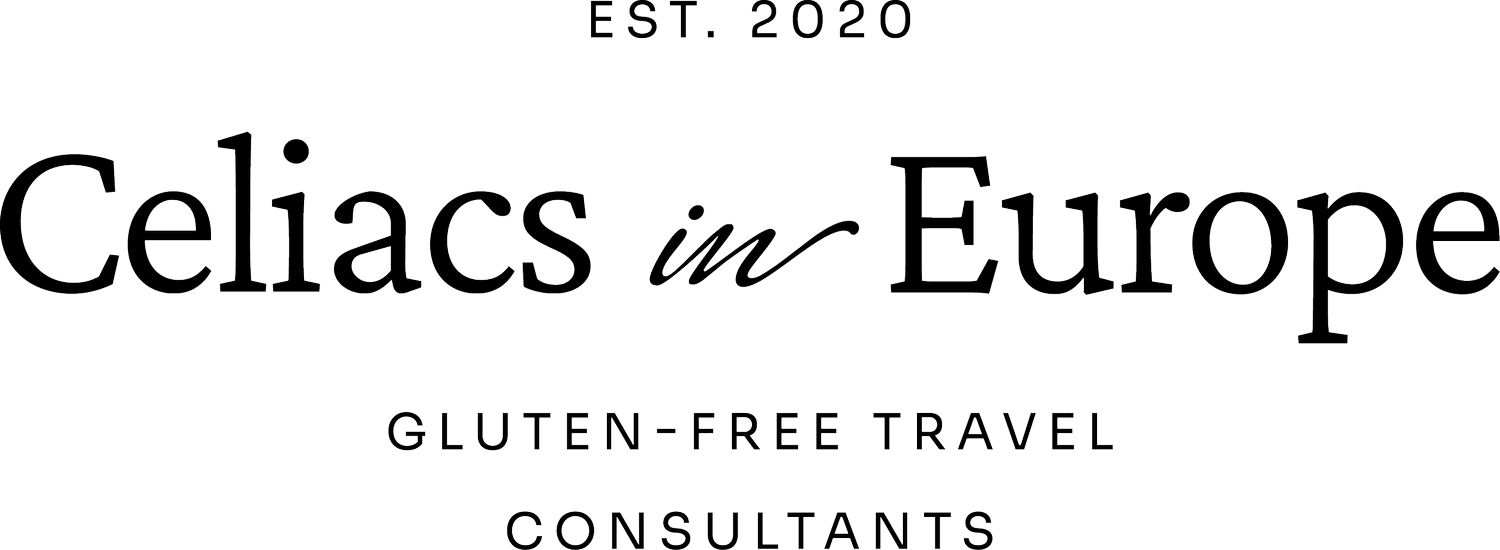How to Be a Respectful Visitor in Europe During the Overtourism Crisis
In the past decade, travel to Europe has become more accessible than ever, with cheap flights, social media inspiration, and remote work options fueling an explosion in tourism. While it’s wonderful to see so many people experiencing the beauty and diversity of European destinations, this dramatic increase in visitors has also led to a growing crisis: overtourism.
Overtourism places immense strain on local infrastructure, housing, public services, and the very culture that makes these destinations special in the first place. For gluten-free travelers, especially those of us with celiac disease, being mindful of our impact is especially important. We know what it’s like to feel like an outsider and to rely on the understanding and accommodations of others. In the same spirit, we believe in showing that same thoughtfulness when we’re guests in someone else’s home.
Here are some key ways we can all be more responsible travelers in Europe, helping preserve the places we love to visit so that others can love them too.
1. Choose Lesser-Known Destinations
Everyone dreams of visiting Paris, Rome, and Barcelona, and for good reason! But these popular destinations are facing some of the worst consequences of overtourism, from overcrowded streets to displaced locals. One of the best things we can do is consider alternative destinations that offer just as much magic with fewer crowds.
Cities like Bologna instead of Venice, Porto instead of Lisbon, or Lyon instead of Paris give travelers the chance to explore rich culture, stunning architecture, and incredible gluten-free dining options while reducing the pressure on overburdened cities.
Our team at Celiacs in Europe is constantly researching and building a network of safe gluten-free options across the continent, and we love helping clients discover off-the-beaten-path destinations that still meet their dietary needs.
2. Visit in the Off-Season
Timing matters. While it may not always be possible to plan a trip outside of the high season, even a slight shift can make a big difference. Spring and fall in Europe often bring beautiful weather, lower prices, and fewer crowds compared to peak summer months.
As gluten-free travelers, visiting outside of peak times can also improve our experience in restaurants and hotels. Staff are often less rushed, more attentive, and more willing to have detailed conversations about dietary needs when the pace of tourism is calmer.
3. Choose Hotels Over Airbnbs
We understand the appeal of Airbnb, especially for those who need access to a kitchen. But in many European cities, short-term rental platforms have contributed significantly to the housing crisis, making it harder for locals to find affordable places to live.
Instead, we recommend staying in traditional hotels or locally owned bed and breakfasts. Many of these accommodations now offer rooms with small kitchenettes or even full kitchens. This makes it possible to prepare gluten-free meals safely, without contributing to the housing issues that locals are facing.
Supporting hotels also means you're supporting businesses that pay local taxes and hire local staff, which helps keep communities thriving.
4. Be Respectful of Local Culture
When we travel, we are guests in someone else's home. Taking time to learn about the culture, customs, and expectations of a destination goes a long way in showing respect.
This includes dressing appropriately, especially in religious or conservative areas, learning a few basic phrases in the local language, and following social etiquette around dining and tipping. As gluten-free travelers, we often appreciate when others make an effort to understand our needs…offering that same effort to local communities creates a more reciprocal and respectful travel experience.
5. Reduce Single-Use Waste
Gluten-free travelers often need to carry snacks, meals, or utensils to stay safe while on the go. While it's important to be prepared, we can also be mindful about minimizing our environmental impact.
Investing in a reusable cutlery set, a travel-friendly food container, and a compact water bottle can reduce waste while still meeting our needs. And when buying gluten-free packaged foods, choose options with minimal packaging when possible.
6. Support Local Businesses and Responsible Tours
Chain restaurants and global brands might feel safe, but they're not where the heart of European culture lives. Seek out independently owned restaurants, bakeries, and shops. These businesses are more likely to care about their reputation and provide thoughtful, quality service, including when it comes to food allergies and dietary needs.
When booking tours or excursions, look for responsible tour operators that give back to the local community and prioritize ethical travel. Many of these operators offer smaller group sizes, include local guides, and take travelers to places that are less trafficked but equally memorable.
7. Leave Places Better Than You Found Them
It’s a simple but powerful mindset. Be mindful of noise, avoid littering, respect signage, and don't assume that “tourist-friendly” means “free-for-all.” Respect historical sites, ask before taking photos of people or private property, and give locals the space to enjoy their city too.
Being a responsible tourist isn’t about perfection. It’s about small choices that show care, humility, and gratitude.
Making Travel Sustainable for Gluten-Free Travelers
At Celiacs in Europe, our goal is to make gluten-free travel safer, easier, and more fulfilling without compromising the well-being of the places we love to explore. Whether you’re planning a trip to Italy, France, Greece, or beyond, we’re here to help you travel confidently and consciously.
If you want help planning a celiac-safe trip while being a respectful visitor, consider booking a consultation with one of our country-specific travel experts. We’ll help you discover hidden gems, navigate local customs, and find safe, delicious gluten-free options so you can enjoy the journey while supporting the people and places that make Europe so special.

